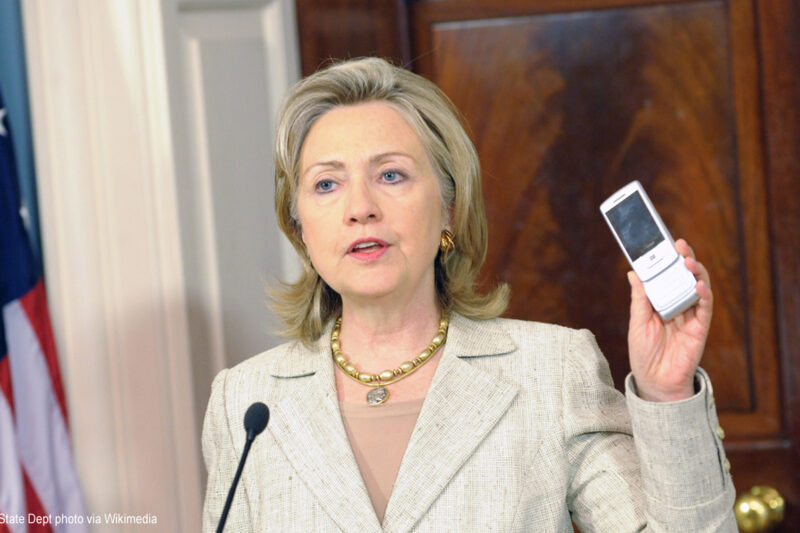
In a Tuesday New Yorker piece, Jeffrey Toobin the Hillary Clinton email scandal in the context of our government’s out-of-control secrecy system (which we detailed in this 2011 report). This controversy, as my colleague Gabe Rottman observed when it first broke, “highlights the incoherence and unfairness of existing classification policies,” such as its differential application to government insiders and outsiders.
But Toobin also points out that part of the reason that Clinton has ended up in morass of controversy is that “the definition of what constitutes a government secret has never been clear”—and that not only does the public have no way of knowing what is classified, but classified information is not necessarily marked as such and “realistically, government officials can't know either—and this is Hillary Clinton’s problem.” The result for her is that the investigation is likely to drag on, he says.
In short, the vagueness and lack of definition of the secrecy regime, as well as the tendency of secret classifications to spread like cancer through government information systems, has tripped her up. And because she is a national political figure running for president—in short, someone who has a lot of people gunning for her—that regime will provide lots of fodder for her enemies. She has faced justified criticism over what appears to have been an effort to evade systems designed for government openness—using a private email account for official business—but if she is now enmeshed in an ongoing morass with this issue, it is at least in part because of the nature of our classification system.
Our classification system has spun so far out of control, and is such a morass of often vague and unknowable determinations, that it has become one of those areas of law (along with tax law, perhaps, and immigration law) that is so complex that non-specialists cannot hope to understand it. That opaqueness greatly increases the amount of discretion involved in interpreting what is and is not compliant—and that means that if somebody is out to get you, they've got a lot of raw material that can be shaped to do so.
Numerous government whistleblowers have found this out. Former NSA executive Thomas Drake, for example (whose case was itself the subject of an extensive New Yorker by Jane Mayer as well as a on 60 Minutes), came into the crosshairs of the national security establishment for criticizing his agency and was persecuted via an espionage prosecution after a search of his house in which, as Mayer put it, the FBI “bagged documents, computers, and books, and removed eight or ten boxes of office files from his basement.” From that hoard, they identified a couple of documents they alleged were classified.
One document... was marked “unclassified/for official use only” and posted on the N.S.A.’s internal Web site. The government has since argued that the schedule should have been classified, and that Drake should have known this. The other document, which touted the success of [NSA program] Turbulence, was officially declassified in July, 2010, three months after Drake was indicted.
Several other NSA whistleblowers, meanwhile, also had their homes raided, including former Congressional staffer (and NSA overseer) Diane Roark. Of her raid, Mayer writes:
The agents seemed to think that the commercial pitch contained classified information. Roark was shaken: she and the others thought they had edited it scrupulously to insure that it did not. Agents also informed her that a few scattered papers in her old office files were classified. After the raid, she called her lawyer and asked, “If there’s a disagreement on classification, does intent mean anything?”
Intent is, in fact, an important requirement in most criminal secrecy prosecutions, and is why Toobin argues that Clinton is not likely in legal (as opposed to political) jeopardy over her State Department emails. Still, it’s ironic that Clinton is finding herself in some of the same territory as the NSA whistleblowers, given that she has been of Edward Snowden. Clinton does not yet seem to have grasped the collapse in legitimacy of the U.S. secrecy system that has been behind recent whistleblower and leak cases. It is possible to simultaneously recognize that Clinton deserves blame for what appears to be an effort at limiting accountability, but has also been caught up by an unfair and dysfunctional classification system that stands at the ready as a weapon to be wielded against whistleblowers and other insiders who lose the good graces of the national security state.

